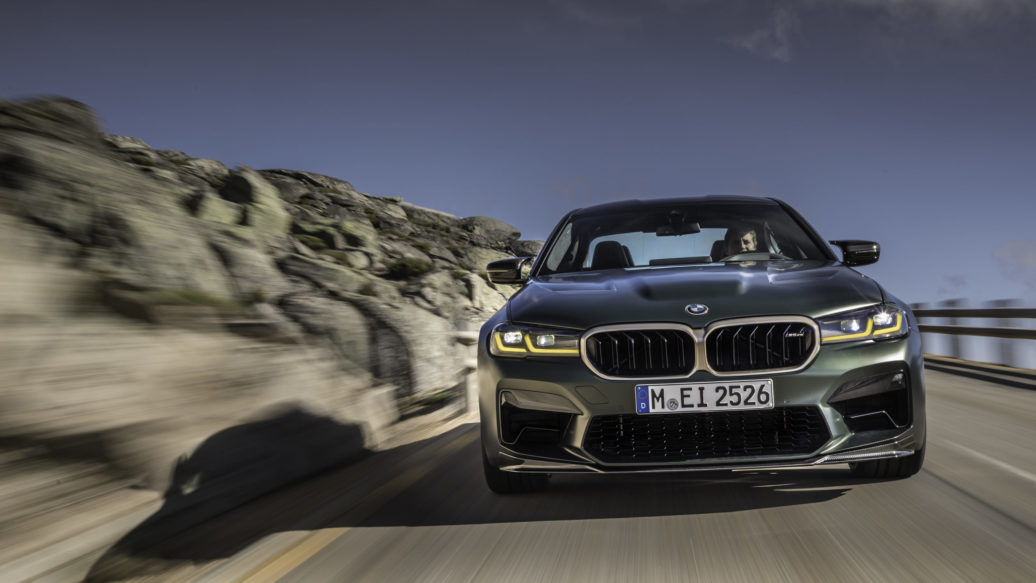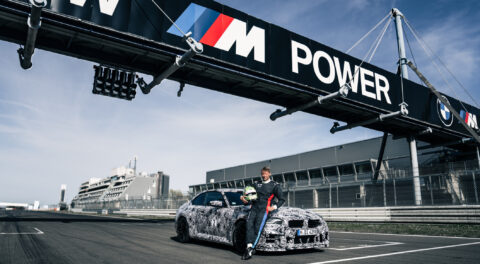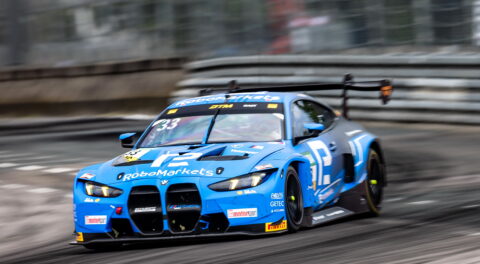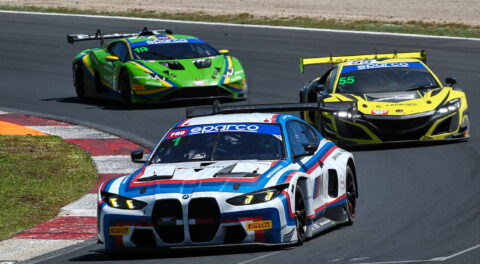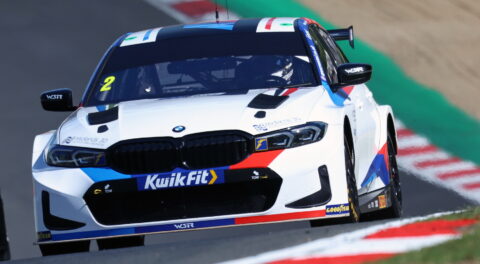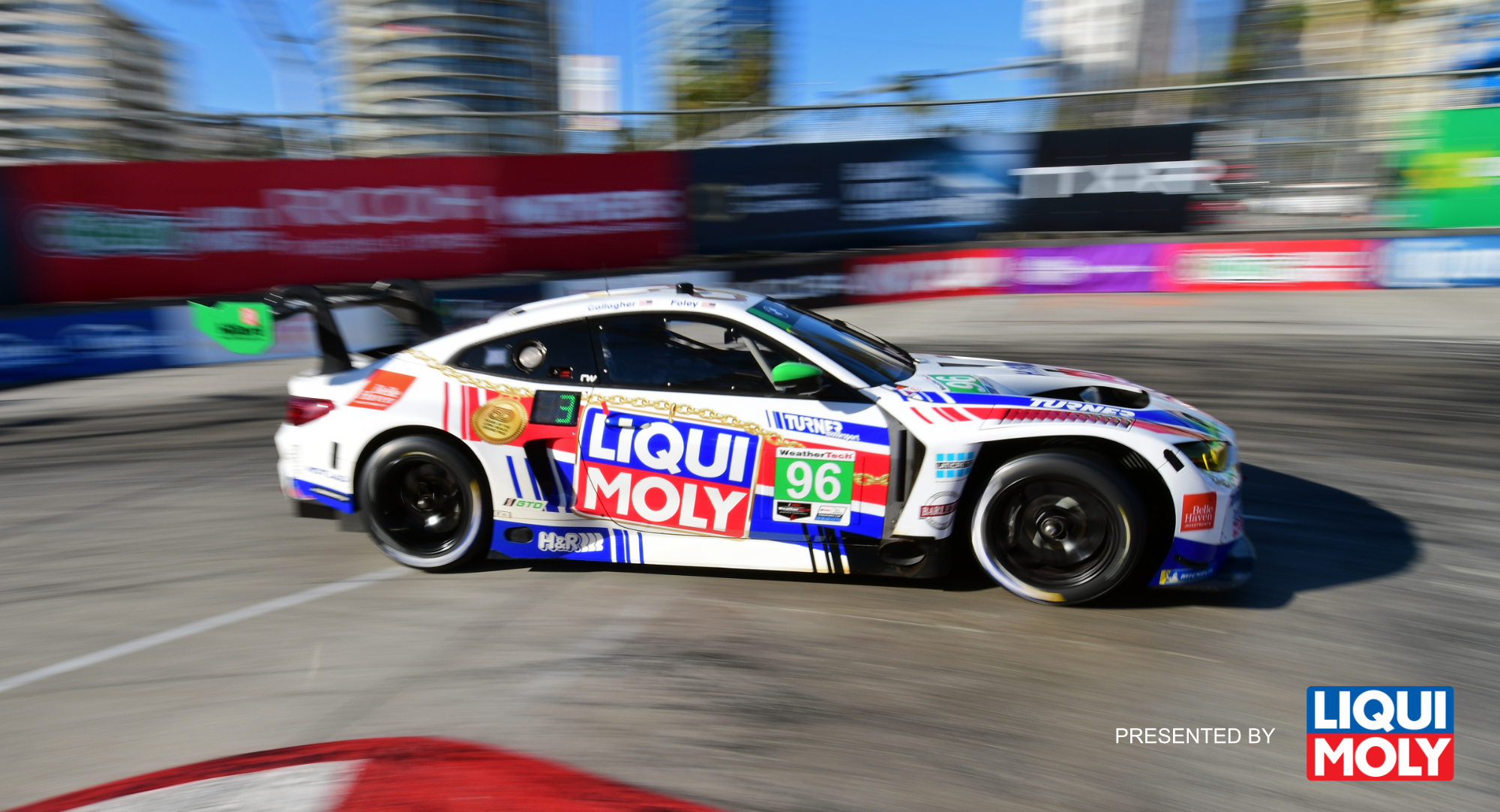A new king has been crowned. A paragon of performance within the BMW lineup since its inception, the M5 has been elevated to a new level of fast, and it’s called CS.
The current F90 chassis M5 shook up the BMW lineup when it arrived. The coupling of M xDrive to the S63 V8 allowed the M5 to realize performance capability previously reserved for supercars and performance thoroughbreds with just two seats. That’s not exactly new territory for the M5, which has been challenging exotics since the first generation, but the F90 moved the needle and ushered in a new era for BMW, in which routing power through all four wheels isn’t the sin it used to be—especially when you route power exclusively to the rear at the press of a programable red M button.
The base-model F90 M5 is rated at 600 horsepower at 6,000 rpm with 553 pound-feet of torque from 1,800 to 5,690, and a manufacturer’s zero-to-60 time of 3.2 seconds. When the F90 M5 Competition was announced in 2018, it brought 617 horsepower at 6,000 rpm with it, along with a slightly different torque curve of 553 pound-feet from 1,800 to 5,860, and an appropriately reduced acceleration time of 3.1 seconds. The F90 M5 CS will be the undisputed performance leader of the lineup, with 627 horsepower at 6,000 rpm, and 553 pound-feet of torque from 1,800 to 5,950. It also sheds more than 230 pounds over its stablemates with a curb weight of 4,114 pounds versus 4,345, and can hit 60 mph from a standstill in just 2.9 seconds, according to BMW. Its top speed is 190 mph.
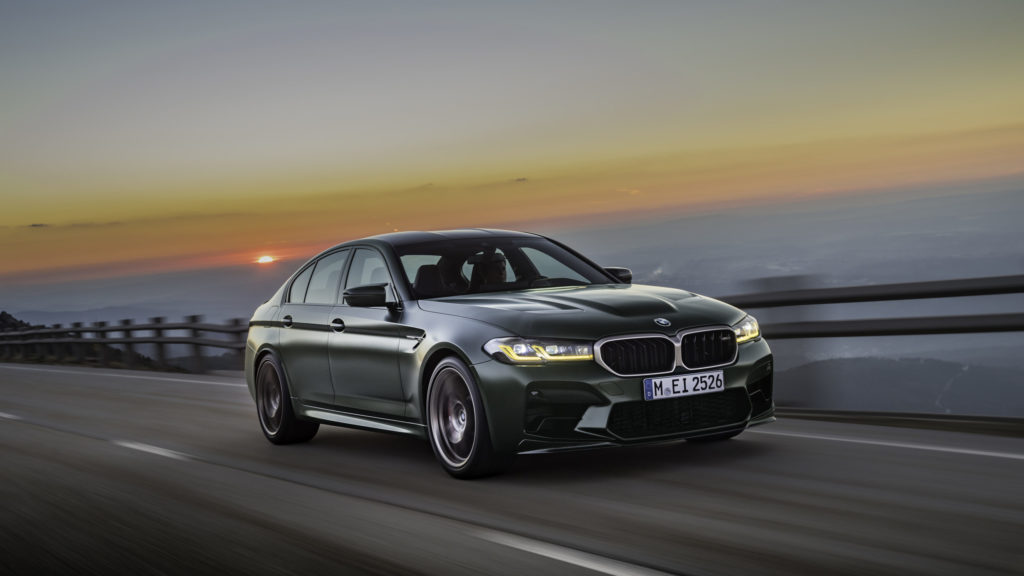
With a horsepower rating previously reserved for BMW’s V12 and a zero-to-60 time below three seconds, the M5 CS is being called the quickest and most powerful BMW production car in the automaker’s history. It’s only going to be made for one model year (2022) and has a starting MSRP of $142,995—a $30,000 premium over the competition—but if you want the most capable and potent BMW available, the M5 CS is it, and it has four doors and four seats.
The performance of the M5 CS means that it is likely to unseat the M8 Competition as the fastest-accelerating BMW currently on sale. Although the M8 Competition is assigned a zero-to-60 time of three seconds flat according to BMW, real-world testing has revealed it to be capable of hitting 60 in just 2.5 seconds, and the M5 has also outperformed its manufacturer acceleration by a healthy margin as well. If the trend continues, it means the M5 CS could earn a spot amongst the likes of the Bugatti Chiron and the electric Porsche Taycan Turbo S as one of the fastest-accelerating production cars of all time.
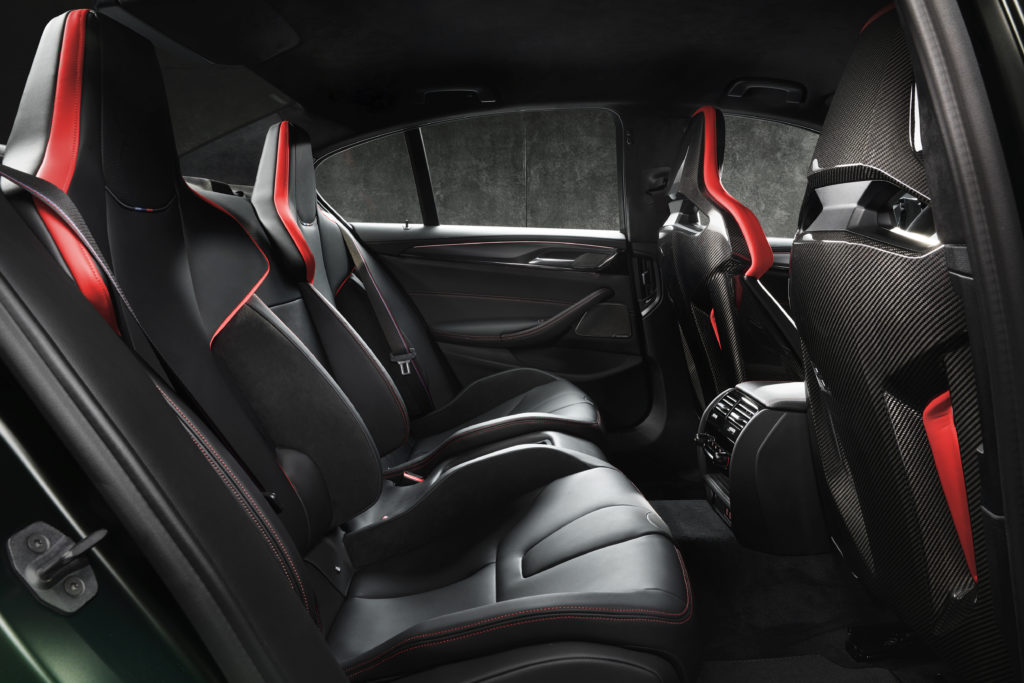
The M5 CS isn’t about sheer brute force and power, however. An integral part of its performance formula is the aforementioned 230-pound weight reduction, which is achieved through liberal use of carbon-fiber and carbon-fiber reinforced plastic (CFRP). In addition to the carbon-fiber roof, which is standard throughout the F90 M5 lineup, the vented hood is also made from the lightweight material, and so is the front splitter, mirror caps, rear diffusor, and rear spoiler. The engine cover is also carbon-fiber, while a reduction in the amount of sound proofing also sheds weight.
Carbon-fiber is also on display within the cabin, where it forms the back of the front seats and is also used for the shift paddles. Instead of room for up to five, like the M5 and M5 Competition, the M5 CS has accommodations for up to four, with bucket seats taking the place of the rear bench. The conventional front armrest design has also been replaced by a lightweight counterpart which goes without an internal storage tray—to save weight.
Model-specific Mugello Red CS highlights on the inside which take the form of contrasting stitching and other appointments are complemented on the outside with forged Y-spoke wheels finished in Gold Bronze, a matching kidney grille surround, and model designations. Each headrest bears a Nurburgring outline, and the M tricolor stripe appears on the seatbelts. The adaptive LED headlights feature motorsport-inspired yellow L-shaped light tubes as opposed to the traditional white seen on the regular M5 and the rest of the BMW model lineup.
M Carbon ceramic brakes are standard, and can be had with red calipers instead of the traditional gold commonly associated with the upgraded setup. The system weighs more than 50 pounds less than the conventional M compound steel alternative. The suspension is dropped five millimeters all around and features 10% stiffer springs in addition to increased front negative camber, a firmer rear sway bar and tow-link balljoint mounts. Stiffer engine mounts are also used. Pirelli P Zero Corsa tires with a 275 section up front and 285 in the rear wrap the aforementioned forged Gold Bronze Y-spoke wheels.
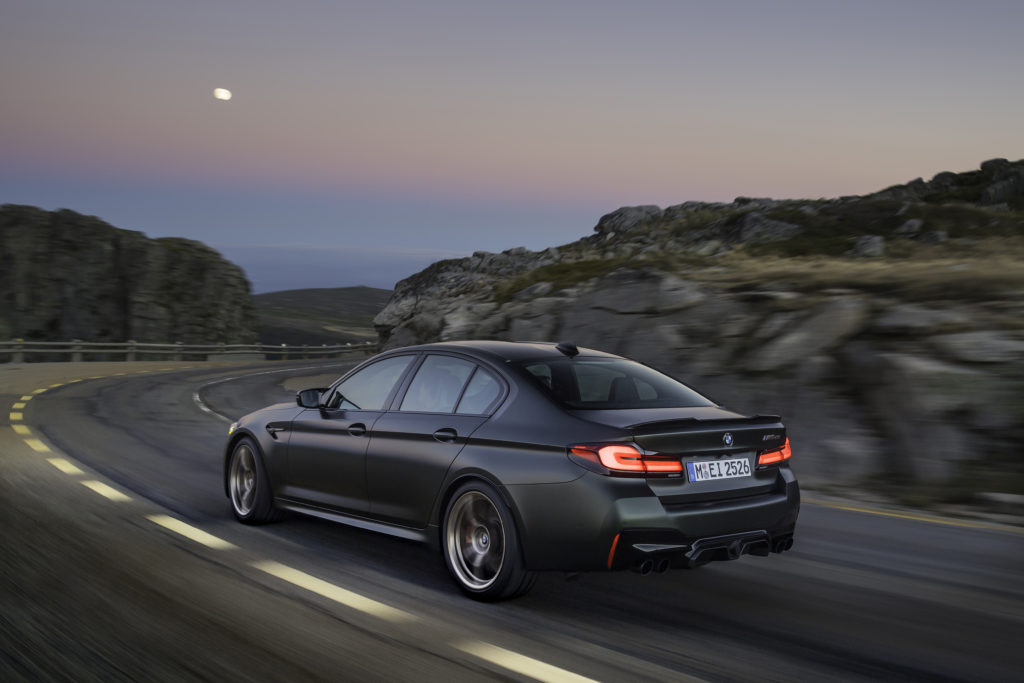
The standard color for the M5 CS will be Brands Hatch Grey metallic, while BMW Individual Frozen Brands Hatch Grey and Frozen Deep Green are optional. The model will only be produced for the 2022 model year, and is set to arrive in the U.S. during the second half of 2021. Pricing starts at $142,995.
If you’re in need of more convincing of the milestone that the M5 CS represents, consider the following: it’s power to weight rating is the best of the current BMW M lineup by a healthy margin, and its 627-horsepower S63 M V8 is the first BMW engine to eclipse the naturally aspirated S70/2 V12 of the McLaren F1. BMW has not divulged production numbers, but they’re almost sure to be very limited.—Alex Tock
[Photos courtesy BMW AG.]

